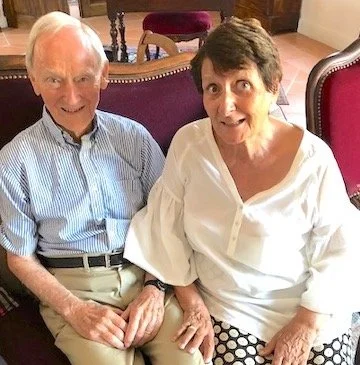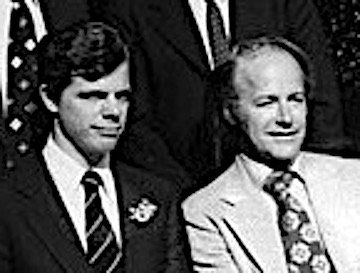In his latest book, A Love Supreme: The Music of Jazz and the Hope of the Gospel, theologian and jazz pianist William Edgar argues that the music of jazz cannot be properly understood apart from the Christian gospel, which like jazz moves from deep lament to inextinguishable joy. Jazz deeply resonates with the hope that is ultimately found in the good news of Jesus Christ. Below he reflects on the special affinity for jazz in France, which provides a unique opportunity and context in which to share the Good News.
Philip Barackman
Trustee of The Huguenot Fellowship
*******
Aimer le ‘Swingue’
For reasons not always easy to identify French people, most of them, love jazz music. When we lived there, jazz clubs and jazz festivals were the rage. Gospel choirs would guaranty large audiences. When “Sister Act” came out, featuring Oh Happy Day, hundreds of church choirs embraced the song. When Monty Alexander comes to France the concert halls are full and often wonderfully boisterous.
The history of jazz in France goes way back. During World War II an American military band headed by James Reese Europe, became wildly popular throughout France. Jim Europe would take local folk songs and turn them into “ragtime” the earliest name for jazz. The larger-than-life Hugues Panassié founded Le Hot Club de France which is still going today. Its purpose is to foster jazz music and welcome American musicians. He and the club were among the first to identify the great Louis Armstrong and invite him to France to give concerts.
The Hot Club became entrenched in its conservative views, opposing New Orleans style to modern jazz and bebop. Somewhat typically of Gallic certainty, a mini war ensued over the virtues or deficits of modern jazz. The pro side broke away and founded their own movement. Why such strong feelings? Personalities were involved. But so were convictions about how jazz works. The accusation formulated against modern jazz was that it doesn’t swing!
Despite this tempest in a teapot, jazz continued to flourish in France. Several prominent musicians, the most prominent of which was Sidney Bechet, the soprano saxophonist who composed the classic Petite Fleur. Musicians such as Duke Ellington, Lester Young and Miles Davis found a warm welcome in Paris. Rightly or wrongly, black artists sensed the absence of racism and degradation they experienced in America. France has always boasted of a more tolerant attitude toward racial minorities, though their attitude toward North Africans might belie that.
Somewhat less tangibly, jazz carried with it a certain exotic aura, which appealed to the French spirit. It also represented freedom, which they yearned for in the dark inter war years. To get a good idea of how jazz fits into French culture one should consult the photography of Jean-Pierre Leloir. His album, Jazz Images sensitively depicts the French love affair with this music. Leloir delicately illustrates the tragedies as well as the triumphs of jazz in France. For example, Leloir shot the heart-breaking singer Billie Holiday in November, 1958, when she was forbidden to sing in New York clubs because of drug charges. She died in July, 1959.
There are significant French jazz musicians and orchestras. Perhaps the best-known is Michel Legrand, who wrote the popular Summer of ’42. When we lived there, I had the joy of playing with some marvelous musicians. Many of them were trained academically, which meant they were quite competent if at times lacking in the earthiness typical of real jazz. No doubt it is impossible to develop as a jazz artist if you have not somehow worked in the trenches.
Our little trio, Renewal developed a program which presented the gospel using jazz music as an illustration. Our matchless vocalist, Ruth Naomi Floyd, never failed to move audiences with her magnificent voice. In a day when French people are not likely to respond to typical evangelistic outreach, they respond to jazz.
William Edgar
Professeur Associé FJC










